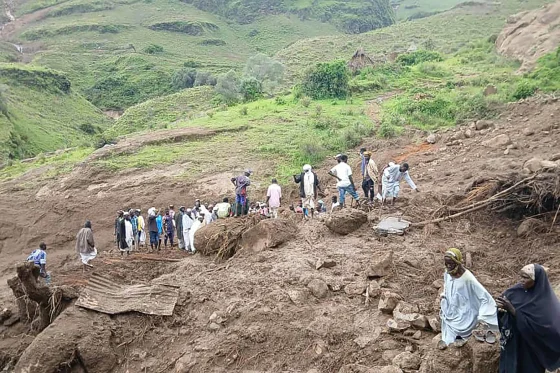
Sudan is mourning one of the deadliest natural disasters in its recent history after a massive landslide struck the village of Tarasin in the mountainous West Darfur region.
Early reports suggest that more than 1,000 people have lost their lives, with only one survivor confirmed so far, according to the Sudan Liberation Movement/Army, which controls the area.
The tragedy unfolded on Sunday, September 1, 2025, in the Marra Mountains, a volcanic range known for its steep terrain and vulnerability to landslides during the rainy season.
Images released from the site show entire houses buried under mud and debris, with trees uprooted and the landscape scarred by the force of the slide.
Tarasin’s remote location has severely hampered rescue and relief efforts.
There are no viable roads into the area, and access is further complicated by unstable terrain, slowing the recovery of bodies and delivery of humanitarian aid.
The armed group governing the region has appealed to the United Nations and international humanitarian organizations for urgent assistance.
Darfur’s pro-army governor, Minni Minnawi, described the disaster as a “tragedy” and called for immediate international support, warning that “the tragedy is greater than our people can bear alone.”
The landslide comes amid an ongoing humanitarian crisis in Sudan, which the United Nations has described as one of the world’s worst, largely driven by conflict.
Since April 2023, clashes between army chief Abdel Fattah al-Burhan and his former ally Mohamed Hamdan Daglo, leader of the Rapid Support Forces (RSF), have left tens of thousands dead and displaced more than 14 million people.
Darfur, already heavily affected by the conflict, faces heightened vulnerability during the rainy season, with risks of disease and further displacement compounding the suffering of local communities.
Amnesty International has highlighted the additional dangers posed by seasonal rains for those displaced by ongoing violence, warning that worsening conditions could further strain an already fragile humanitarian situation.
As rescue operations continue, the international community faces mounting pressure to respond swiftly to this catastrophe and provide support to a region grappling with both natural and man-made disasters.



